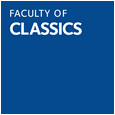Dover’s work on Greek language in general and Attic comic language in particular has proved foundational in establishing some of the most successful directions of international scholarship in these areas. This is most apparent when one considers Greek Word Order: though not the first to move beyond the grammar of the sentence to that of discourse, Dover’s attention to larger discourse structures (subordination, discourse particles, the connectedness between the different parts of the text perceived as a unified entity), together with his focus on the category of ‘logical’ (vs syntactical) determinants, made him a pragmatist avant la lettre at a time when functional grammar was only beginning to be fully theorized. Dover’s sustained forays into the study of register variation (colloquialism, technical languages, vocabulary of sex and scatology, etc.) and of stylistics, by identifying patterns across different linguistic corpora (comedy, oratory, historiography, to mention only some of his favourite subjects), have been equally inspirational for future generations. In this sense, the recent burgeoning of sociolinguistic studies on Greek comic language is much indebted to Dover’s previous work on the subject. Likewise, contemporary studies on fifth-century Attic dialect still take as a starting-point his influential papers on colloquial strata in classical Attic prose (Dover 1981c = G&G 16–30), the language of Attic documentary inscriptions (Dover 1981d = G&G 31–41), and the ever elusive relationship of early Attic with Ionic prose (Dover 1950, 56–60 = G&L 29–34 and EGPS ch. 5). His readiness to harness typological parallels from anthropological and sociolinguistic research outside Classics to investigate various aspects of Greek culture and language has also proved to be farsighted and ahead of its time....



